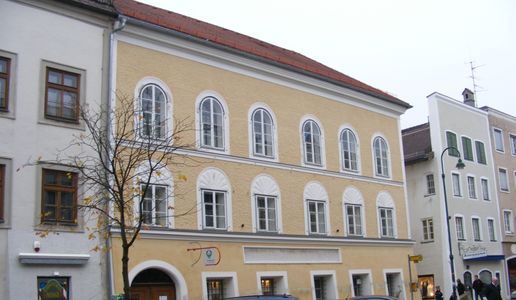Berger in CSM on Expropriation of Hitler’s House
Thomas Berger, Professor of International Relations at the Frederick S. Pardee School of Global Studies at Boston University, was recently interviewed on the expropriation of the house where Adolf Hitler was born by the Austrian government.
Berger was interviewed for a December 15, 2016 article in the Christian Science Monitor entitled “Austria to Seize, But Not Destroy, Hitler’s House. Here’s Why it Matters.”
From the text of the article:
The site has been the object of pilgrimages by neo-Nazi groups, to the dismay of locals. And the climate of European politics turning rightward – the far-right populist Freedom Party nearly captured the Austrian presidency in this month’s elections – probably “weighed heavily on the minds of policy-makers” in debates over whether to raze the house or remodel it, says Thomas Berger, a Boston University professor of international relations who has written a book about the role of guilt in post-World War II politics.
“No one expects the Nazis to come back,” he tells The Christian Science Monitor. But there are disturbing similarities between politics of mid 20th-century Europe and the present, he adds. “European political leaders want to remind the general population that Europe stands against it.”
You can read the entire article here.
Thomas Berger joined the Department of International Relations in 2001. Previously, he taught for seven years at the Johns Hopkins Department of Political Science in Baltimore. He is the author of War, Guilt and World Politics After World War II, Cultures of Antimilitarism: National Security in Germany and Japan and is co-editor of Japan in International Politics: Beyond the Reactive State. You can read more about him here.
